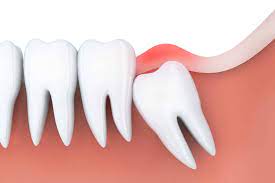A common question among expectant mothers is can you remove wisdom teeth during pregnancy safely? Dental issues don’t take a break when you’re pregnant, and in some cases, Wisdom Tooth Extraction can cause severe pain, swelling, or infection. While elective dental procedures are often postponed, wisdom tooth removal may still be necessary during pregnancy, especially if it poses a risk to the mother or baby. Understanding the risks, timing, and safe practices can help you make an informed decision.
When Is Wisdom Tooth Removal Necessary During Pregnancy?
Not all wisdom teeth need to be removed while pregnant, but some situations may demand urgent attention. A dental professional will weigh the benefits and risks before proceeding with treatment.
- If the wisdom tooth is infected, removal may be necessary to prevent systemic issues
- Severe pain or abscess formation can disrupt sleep, nutrition, and general well-being
- Cysts or bone damage caused by impacted wisdom teeth may require intervention
- If the tooth threatens nearby teeth or causes jaw stiffness, removal might be safer than waiting
- Emergency procedures are sometimes unavoidable, regardless of pregnancy status
In such cases, your dentist or oral surgeon will coordinate with your OB-GYN to ensure safety.
Best Time During Pregnancy for Dental Surgery:
If you and your provider decide that removing your wisdom tooth is necessary, timing matters. Certain trimesters are considered more appropriate for procedures than others.
- The second trimester (weeks 13–28) is generally the safest window for non-emergency dental work
- The first trimester is avoided due to early fetal development, and higher miscarriage risk
- The third trimester can be uncomfortable, with added risks due to positioning and preterm labor concerns
- Local anesthesia is safest during the second trimester, and x-rays can be done with proper shielding
- Always inform your dentist about your pregnancy, even if it’s early or unconfirmed
Timing and precautions are key to minimizing risks during wisdom tooth extraction in pregnancy.
Safety Measures and Anesthesia Considerations:
If you’re wondering can you remove wisdom teeth during pregnancy without complications, the answer depends on the safety steps taken by your dental team. Modern dental care has protocols in place to protect both mother and baby.
- Local anesthesia (like lidocaine) is typically safe, and used in the smallest effective dose
- X-rays can be performed using lead aprons, shielding the abdomen and thyroid
- Antibiotics and pain relievers are carefully selected, avoiding drugs harmful during pregnancy
- Sedation and general anesthesia are usually avoided, unless it’s an emergency
- The dental team will monitor your comfort, position, and stress throughout the procedure
Your care plan will be personalized and cautious to prevent undue risk.
Recovery and Post-Op Care for Pregnant Patients:
Recovery after Wisdom Tooth Extraction Treatment during pregnancy is similar to non-pregnant patients but with extra attention to comfort and medication safety.
- Pain management will rely on pregnancy-safe options, like acetaminophen
- Antibiotics prescribed will be category B drugs, known to be safe for the fetus
- You’ll be advised to rest in a semi-reclined position, to avoid compressing major blood vessels
- Cold compresses can help reduce swelling, and saltwater rinses keep the area clean
- Nutrition and hydration remain crucial, and soft, nourishing foods are recommended
Healing tends to go smoothly with proper post-op care and professional guidance.
Alternatives and Preventive Strategies During Pregnancy:
In some cases, temporary measures can be taken to delay extraction until after delivery. These alternatives are often effective for non-urgent dental concerns.
- Antibiotics can help control infection, buying time until extraction is safer
- Dental cleanings and fluoride treatments reduce the chance of cavities or gum issues during pregnancy
- Warm saltwater rinses and topical numbing gels can ease mild pain temporarily
- Cold compresses help manage swelling, especially during sleep
- Regular dental checkups during pregnancy allow early detection and prevention
When managed well, many wisdom tooth problems can be monitored until the postpartum period.

